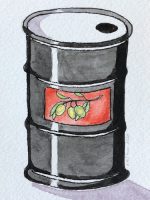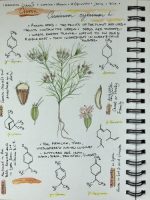You may remember the horse meat scandal of 2013, which involved the recall of at least 10 million products[i] and prompted a new era of awareness of food fraud risks among the international food safety community. In that scandal, horse meat was being used to replace beef.
Despite the widespread publicity received by the horse meat scandal, similar frauds have happened since 2013. For example, in 2021, six people were arrested in Brazil and accused of stealing horses, then selling their meat “disguised” as beef.[ii] Authorities said that up to 60% of restaurants in the area had unknowingly purchased the fraudulent “beef.”
Horse meat is not only used by criminals to replace beef. In regions where horse meat is regularly consumed, such as in many parts of Europe, the ingredient itself is vulnerable to food fraud. Fraud occurs when horses that are not safe to eat are used for human food.
Veterinary drugs, including pain killers and horse worming treatments, can render horsemeat unsafe and make the horse unsuitable for food. Horse passports are used to keep records of veterinary drug treatments and show whether a horse has been ‘signed out’ of the human food chain.[iii]
In September 2022, authorities in the Netherlands discovered incorrect passports for slaughtered horses in the human food supply chain.[iv] The food originated in the Netherlands and was distributed to Belgium, France, Germany and Italy.
Horse meat fraud is attractive to criminals because it offers good profits. There is an abundant supply of horses from the equine racing and recreational horse industries. Unwanted horses are expensive to keep, so they are sold at very low prices or even given away for free. Operations that process cheap or free horses for food can be very profitable.
Food fraud perpetrators who wish to use unsuitable horses for human food must therefore falsify horse passports and other documents to make the horse meat appear legitimate, or use clandestine slaughterhouses and sell the meat through illegitimate supply chains.
There have been 11 notifications of problems with horse passports in Europe since January 2020 reported in the European Commission’s Rapid Alert System for Food and Feed (RASFF). These include “Incorrect passports of slaughtered horses”; “Poor traceability records (forged passports) for horse from the Netherlands”; “Horse without medicine pages in the passport”; “Horsemeat from an animal excluded from the food chain” and “Incorrect registration information on horse carcasses.” In 2017, a veterinary drug banned in Europe was found in horse meat imported from Brazil.[v]
Authorities in Spain and Belgium recently smashed a criminal network that was profiting from horse meat fraud and that involved illegal slaughter and falsification of documents. Forty-one people were arrested over their links to the operation. The alleged perpetrators are accused of obtaining horses that were not fit for human consumption, slaughtering them in clandestine operations and falsifying documents to make the resulting meat appear to be legal and safe. The network is believed to have been operating since 2019 and may have netted the criminals more than EUR 1.5 million.[vi] One commentator estimated that a horse obtained for less than EUR 100 was worth EUR 1500 after illegal processing and falsification of its legal status.[vii]
References:
[i] Writer, S. (2013). Living to tell the tail: how and why Australia survived the horse meat scandal. [online] Food & Beverage Industry News. Available at: https://www.foodmag.com.au/living-to-tell-the-tail-how-and-why-australia-survived-the-horse-meat-scandal/ [Accessed 8 Dec. 2022].
[ii] Hallam, A.R., Jonny (2021). Gang sold tons of horse disguised as beef and put rotting meat in hamburgers, Brazilian officials say. [online] CNN. Available at: https://edition.cnn.com/2021/11/19/americas/brazil-horse-meat-gang-intl-hnk-scli/index.html [Accessed 8 Dec. 2022].
[iii] www.businesscompanion.info. (n.d.). Horse passports | Business Companion. [online] Available at: https://www.businesscompanion.info/en/quick-guides/animals-and-agriculture/horse-passports [Accessed 8 Dec. 2022].
[iv] webgate.ec.europa.eu. (n.d.). RASFF WINDOW. [online] Available at: https://webgate.ec.europa.eu/rasff-window/screen/notification/569545 [Accessed 8 Dec. 2022].
[v] foodnavigator.com (n.d.). Belgium horsemeat call after drug found in Brazilian imports. [online] foodnavigator.com. Available at: https://www.foodnavigator.com/Article/2017/01/19/Belgium-horsemeat-call-after-drug-found-in-Brazilian-imports [Accessed 8 Dec. 2022].
[vi] Europol. (n.d.). 41 arrests for selling potentially dangerous horse meat. [online] Available at: https://www.europol.europa.eu/media-press/newsroom/news/41-arrests-for-selling-potentially-dangerous-horse-meat [Accessed 8 Dec. 2022].
[vii] Desk, N. (2022). Europol and Spain lead horse meat fraud investigation. [online] Food Safety News. Available at: https://www.foodsafetynews.com/2022/12/europol-and-spain-lead-horse-meat-fraud-investigation/ [Accessed 8 Dec. 2022].












